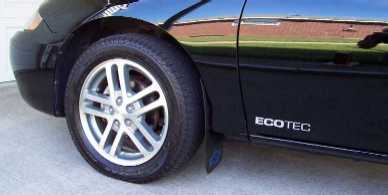i know it burns gas when using it, but does the speed matter? does the AC use the same amount of fuel on the lowest speed as it does on the highest speed? just curious
Civickiller
Notice when set on the lowest speed, it is easier to get going from a dead stop than when on the highest setting.
The compressor has to work harder with the highest setting, therefore using more fuel.
- 2004 Cavalier - 124k, owned since new
I think that it puts the same strain on your motor no matter what. It is just more noticbale at lower speeds.
But if you are looking at the more Fuel effecient way. When you are on the highway doing highway speeds execially if you are using your Cruise control. Rolling up the windows will probably be more effective. I know you are still using your A/C but with the windows rolled up you are more areodynamic. Having the windows rolled down will cause wind resitance that will make your car work that much harder to keep up with speed. I think even harder than you using your A/C.
What I end up doing alot is around town I will have my windows rolled down, A/C off. Get up onto the highway and get to speed and start to turn my A/C once that gets going I roll up my windows. Atleast that is what I do in my Wfes' 04 Cavalier.
My A/C in my 00Z24 doesnt' work anymore. LOL
When its on its on. The compressor cycles on and off as determined by the presure in the lines. Turning it on high or low makes ZERO difference the compressor runs the same. Fan speed has nothing to do with the compressor at all nor does swithing from vent to floor to defrost or re-circulate The compressor still runs the same. The fan
speed does not effect engine load or fuel economy either way. Do whatever you have to to stop from melting in this heat and don't worry about your gas.
Semper Fi SAINT. May you rest in peace.
Actually, there is a small difference caused by the load of the fan. At higher fan speeds, the fan draws more current and loads the alternator more than at lower fan speeds. The increased alternator load is transferred to the engine load. However, this is a relatively small increase in engine load and should be hardly noticeable in normal driving situations.
<img src="http://home.att.net/~lls4849/beer.gif">


